Indoctrinating a new generation
Is there anyone out there who still believes that Barack Obama, when he’s speaking about American foreign policy, is capable of being anything like an honest man? In a March 26 talk in Belgium to “European youth”, the president fed his audience one falsehood, half-truth, blatant omission, or hypocrisy after another. If George W. Bush had made some of these statements, Obama supporters would not hesitate to shake their head, roll their eyes, or smirk. Here’s a sample:
– “In defending its actions, Russian leaders have further claimed Kosovo as a precedent – an example they say of the West interfering in the affairs of a smaller country, just as they’re doing now. But NATO only intervened after the people of Kosovo were systematically brutalized and killed for years.”
Most people who follow such things are convinced that the 1999 US/NATO bombing of the Serbian province of Kosovo took place only after the Serbian-forced deportation of ethnic Albanians from Kosovo was well underway; which is to say that the bombing was launched to stop this “ethnic cleansing”. In actuality, the systematic deportations of large numbers of people did not begin until a few days after the bombing began, and was clearly a reaction to it, born of Serbia’s extreme anger and powerlessness over the bombing. This is easily verified by looking at a daily newspaper for the few days before the bombing began the night of March 23/24, 1999, and the few days following. Or simply look at the New York Times of March 26, page 1, which reads:
… with the NATO bombing already begun, a deepening sense of fear took hold in Pristina [the main city of Kosovo] that the Serbs would now vent their rage against ethnic Albanian civilians in retaliation. [emphasis added]
On March 27, we find the first reference to a “forced march” or anything of that nature.
But the propaganda version is already set in marble.
– “And Kosovo only left Serbia after a referendum was organized, not outside the boundaries of international law, but in careful cooperation with the United Nations and with Kosovo’s neighbors. None of that even came close to happening in Crimea.”
None of that even came close to happening in Kosovo either. The story is false. The referendum the president speaks of never happened. Did the mainstream media pick up on this or on the previous example? If any reader comes across such I’d appreciate being informed.
Crimea, by the way, did have a referendum. A real one.
– “Workers and engineers gave life to the Marshall Plan … As the Iron Curtain fell here in Europe, the iron fist of apartheid was unclenched, and Nelson Mandela emerged upright, proud, from prison to lead a multiracial democracy. Latin American nations rejected dictatorship and built new democracies … “
The president might have mentioned that the main beneficiary of the Marshall Plan was US corporations , that the United States played an indispensable role in Mandela being caught and imprisoned, and that virtually all the Latin American dictatorships owed their very existence to Washington. Instead, the European youth were fed the same party line that their parents were fed, as were all Americans.
– “Yes, we believe in democracy – with elections that are free and fair.”
In this talk, the main purpose of which was to lambaste the Russians for their actions concerning Ukraine, there was no mention that the government overthrown in that country with the clear support of the United States had been democratically elected.
– “Moreover, Russia has pointed to America’s decision to go into Iraq as an example of Western hypocrisy. … But even in Iraq, America sought to work within the international system. We did not claim or annex Iraq’s territory. We did not grab its resources for our own gain. Instead, we ended our war and left Iraq to its people and a fully sovereign Iraqi state that could make decisions about its own future.”
The US did not get UN Security Council approval for its invasion, the only approval that could legitimize the action. It occupied Iraq from one end of the country to the other for 8 years, forcing the government to privatize the oil industry and accept multinational – largely U.S.-based, oil companies’ – ownership. This endeavor was less than successful because of the violence unleashed by the invasion. The US military finally was forced to leave because the Iraqi government refused to give immunity to American soldiers for their many crimes.
Here is a brief summary of what Barack Obama is attempting to present as America’s moral superiority to the Russians:
The modern, educated, advanced nation of Iraq was reduced to a quasi failed state … the Americans, beginning in 1991, bombed for 12 years, with one dubious excuse or another; then invaded, then occupied, overthrew the government, tortured without inhibition, killed wantonly … the people of that unhappy land lost everything – their homes, their schools, their electricity, their clean water, their environment, their neighborhoods, their mosques, their archaeology, their jobs, their careers, their professionals, their state-run enterprises, their physical health, their mental health, their health care, their welfare state, their women’s rights, their religious tolerance, their safety, their security, their children, their parents, their past, their present, their future, their lives … More than half the population either dead, wounded, traumatized, in prison, internally displaced, or in foreign exile … The air, soil, water, blood, and genes drenched with depleted uranium … the most awful birth defects … unexploded cluster bombs lying in wait for children to pick them up … a river of blood running alongside the Euphrates and Tigris … through a country that may never be put back together again. … “It is a common refrain among war-weary Iraqis that things were better before the U.S.-led invasion in 2003,” reported the Washington Post. (May 5, 2007)
How can all these mistakes, such arrogance, hypocrisy and absurdity find their way into a single international speech by the president of the United States? Is the White House budget not sufficient to hire a decent fact checker? Someone with an intellect and a social conscience? Or does the desire to score propaganda points trump everything else? Is this another symptom of the Banana-Republicization of America?
Long live the Cold War
In 1933 US President Franklin D. Roosevelt recognized the Soviet Union after some 15 years of severed relations following the Bolshevik Revolution. On a day in December of that year, a train was passing through Poland carrying the first American diplomats dispatched to Moscow. Amongst their number was a 29 year-old Foreign Service Officer, later to become famous as a diplomat and scholar, George Kennan. Though he was already deemed a government expert on Russia, the train provided Kennan’s first actual exposure to the Soviet Union. As he listened to his group’s escort, Russian Foreign Minister Maxim Litvinov, reminisce about growing up in a village the train was passing close by, and his dreams of becoming a librarian, the Princeton-educated Kennan was astonished: “We suddenly realized, or at least I did, that these people we were dealing with were human beings like ourselves, that they had been born somewhere, that they had their childhood ambitions as we had. It seemed for a brief moment we could break through and embrace these people.”
It hasn’t happened yet.
One would think that the absence in Russia of communism, of socialism, of the basic threat or challenge to the capitalist system, would be sufficient to write finis to the 70-year Cold War mentality. But the United States is virtually as hostile to 21st-century Russia as it was to 20th-century Soviet Union, surrounding Moscow with military bases, missile sites, and NATO members. Why should that be? Ideology is no longer a factor. But power remains one, specifically America’s perpetual lust for world hegemony. Russia is the only nation that (a) is a military powerhouse, and (b) doesn’t believe that the United States has a god-given-American-exceptionalism right to rule the world, and says so. By these criteria, China might qualify as a poor second. But there are no others.
Washington pretends that it doesn’t understand why Moscow should be upset by Western military encroachment, but it has no such problem when roles are reversed. Secretary of State John Kerry recently stated that Russian troops poised near eastern Ukraine are “creating a climate of fear and intimidation in Ukraine” and raising questions about Russia’s next moves and its commitment to diplomacy.
NATO – ever in need of finding a raison d’être – has now issued a declaration of [cold] war, which reads in part:
“NATO foreign ministers on Tuesday [April 1, 2014] reaffirmed their commitment to enhance the Alliance’s collective defence, agreed to further support Ukraine and to suspend NATO’s practical cooperation with Russia. ‘NATO’s greatest responsibility is to protect and defend our territory and our people. And make no mistake, this is what we will do,’ NATO Secretary General Anders Fogh Rasmussen said. … Ministers directed Allied military authorities to develop additional measures to strengthen collective defence and deterrence against any threat of aggression against the Alliance, Mr. Fogh Rasmussen said. ‘We will make sure we have updated military plans, enhanced exercises and appropriate deployments,’ he said. NATO has already reinforced its presence on the eastern border of the Alliance, including surveillance patrols over Poland and Romania and increased numbers of fighter aircraft allocated to the NATO air policing mission in the Baltic States. … NATO Foreign Ministers also agreed to suspend all of NATO’s practical cooperation with Russia.”
Does anyone recall what NATO said in 2003 when the United States bombed and invaded Iraq with “shock and awe”, compared to the Russians now not firing a single known shot at anyone? And neither Russia nor Ukraine is even a member of NATO. Does NATO have a word to say about the right-wing coup in Ukraine, openly supported by the United States, overthrowing the elected government? Did the hypocrisy get any worse during the Cold War? Imagine that NATO had not been created in 1949. Imagine that it has never existed. What reason could one give today for its creation? Other than to provide a multi-national cover for Washington’s interventions?
One of the main differences between now and the Cold War period is that Americans at home are (not yet) persecuted or prosecuted for supporting Russia or things Russian.
But don’t worry, folks, there won’t be a big US-Russian war. For the same reason there wasn’t one during the Cold War. The United States doesn’t pick on any country which can defend itself.
Cuba … Again … Still … Forever
Is there actually a limit? Will the United States ever stop trying to overthrow the Cuban government? Entire books have been written documenting the unrelenting ways Washington has tried to get rid of tiny Cuba’s horrid socialism – from military invasion to repeated assassination attempts to an embargo that President Clinton’s National Security Advisor called “the most pervasive sanctions ever imposed on a nation in the history of mankind”. But nothing has ever come even close to succeeding. The horrid socialism keeps on inspiring people all over the world. It’s the darnedest thing. Can providing people free or remarkably affordable health care, education, housing, food and culture be all that important?
And now it’s “Cuban Twitter” – an elaborately complex system set up by the US Agency for International Development (USAID) to disguise its American origins and financing, aiming to bring about a “Cuban Spring” uprising. USAID sought to first “build a Cuban audience, mostly young people; then the plan was to push them toward dissent”, hoping the messaging network “would reach critical mass so that dissidents could organize ‘smart mobs’ – mass gatherings called at a moment’s notice – that might trigger political demonstrations or ‘renegotiate the balance of power between the state and society’.” It’s too bad it’s now been exposed, because we all know how wonderful the Egyptian, Syrian, Libyan, and other “Arab Springs” have turned out.
Here’s USAID speaking after their scheme was revealed on April 3: “Cubans were able to talk among themselves, and we are proud of that.” We are thus asked to believe that normally the poor downtrodden Cubans have no good or safe way to communicate with each other. Is the US National Security Agency working for the Cuban government now?
The Associated Press, which broke the story, asks us further to believe that the “truth” about most things important in the world is being kept from the Cuban people by the Castro regime, and that the “Cuban Twitter” would have opened people’s eyes. But what information might a Cuban citizen discover online that the government would not want him to know about? I can’t imagine. Cubans are in constant touch with relatives in the US, by mail and in person. They get US television programs from Miami and other southern cities; both CNN and Telesur (Venezuela, covering Latin America) are seen regularly on Cuban television”; international conferences on all manner of political, economic and social issues are held regularly in Cuba. I’ve spoken at more than one myself. What – it must be asked – does USAID, as well as the American media, think are the great dark secrets being kept from the Cuban people by the nasty commie government?
Those who push this line sometimes point to the serious difficulty of using the Internet in Cuba. The problem is that it’s extremely slow, making certain desired usages often impractical. From an American friend living in Havana: “It’s not a question of getting or not getting internet. I get internet here. The problem is downloading something or connecting to a link takes too long on the very slow connection that exists here, so usually I/we get ‘timed out’.” But the USAID’s “Cuban Twitter”, after all, could not have functioned at all without the Internet.
Places like universities, upscale hotels, and Internet cafés get better connections, at least some of the time; however, it’s rather expensive to use at the hotels and cafés.
In any event, this isn’t a government plot to hide dangerous information. It’s a matter of technical availability and prohibitive cost, both things at least partly in the hands of the United States and American corporations. Microsoft, for example, at one point, if not at present, barred Cuba from using its Messenger instant messaging service.
Cuba and Venezuela have jointly built a fiber optic underwater cable connection that they hope will make them less reliant on the gringos; the outcome of this has not yet been reported in much detail.
The grandly named Agency for International Development does not have an honorable history; this can perhaps be captured by a couple of examples: In 1981, the agency’s director, John Gilligan, stated: “At one time, many AID field offices were infiltrated from top to bottom with CIA people. The idea was to plant operatives in every kind of activity we had overseas, government, volunteer, religious, every kind.”
On June 21, 2012, the Bolivarian Alliance for the Peoples of Our America (ALBA) issued a resolution calling for the immediate expulsion of USAID from their nine member countries, “due to the fact that we consider their presence and actions to constitute an interference which threatens the sovereignty and stability of our nations.”
USAID, the CIA, the National Endowment for Democracy (and the latter’s subsidiaries), together or singly, continue to be present at regime changes, or attempts at same, favorable to Washington, from “color revolutions” to “spring” uprisings, producing a large measure of chaos and suffering for our tired old world.
ABOUT THE AUTHOR
Historian William Blum is a leading critic of US foreign policy.
Notes
- William Blum, America’s Deadliest Export – Democracy: The Truth About US Foreign Policy and Everything Else, p.22-5
- Walter Isaacson & Evan Thomas, The Wise Men (1986), p.158
- Washington Post, March 31, 2014
- “NATO takes measures to reinforce collective defence, agrees on support for Ukraine”, NATO website, April 1, 2014
- Sandy Berger, White House press briefing, November 14, 1997, US Newswire transcript
- Associated Press, April 3 & 4, 2014
- Washington Post, April 4, 2014
- Associated Press, June 2, 2009
- George Cotter, “Spies, strings and missionaries”, The Christian Century (Chicago), March 25, 1981, p.321
Any part of this report may be disseminated without permission, provided attribution to William Blum as author and a link to this website are given.





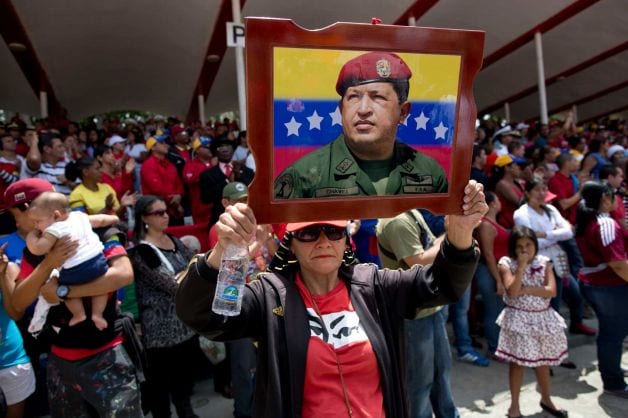


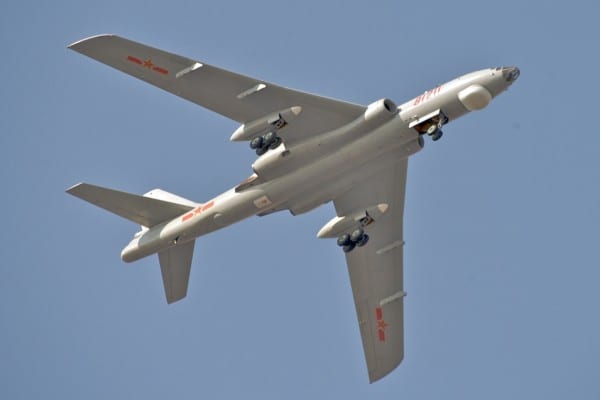
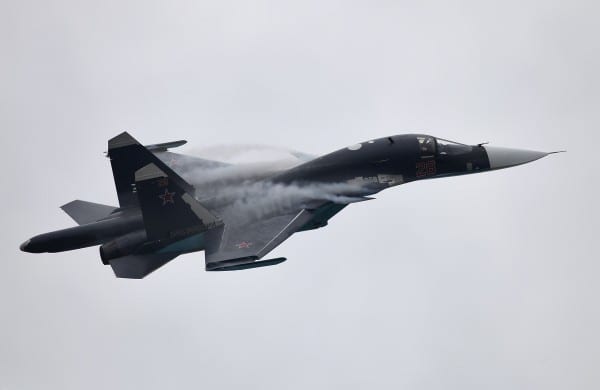
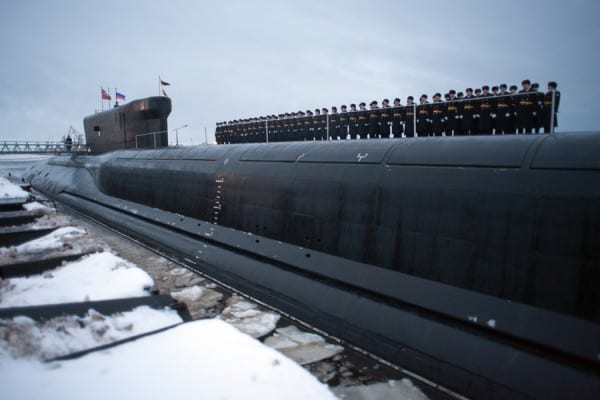
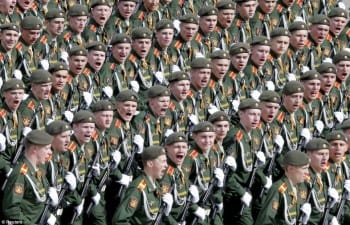
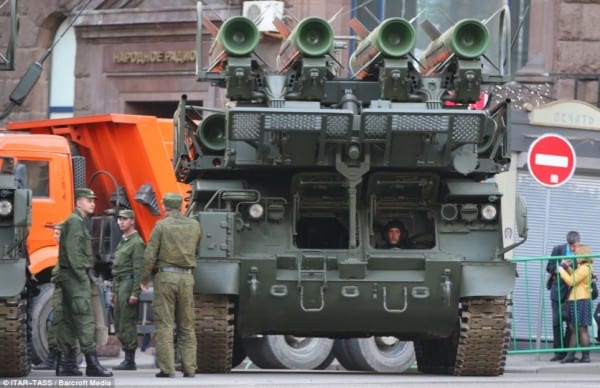
USA pattern
Iran 1953, Guatemala 1954, Chile 1973, Haiti 1915, South Ossettia and much of the middle East. Pattern. Anglo-North Americans including Canadians are the most amnesiac and brainwashed on the planet.
#1 Richard Moore 2014-03-25 00:32 EDT
Orange Revolutions in liberated territories
Not much hope for Orange Revolution tactics in Venezuela, Bolivia, etc. The purpose might be to create a background story to provide an excuse for an eventual intervention.